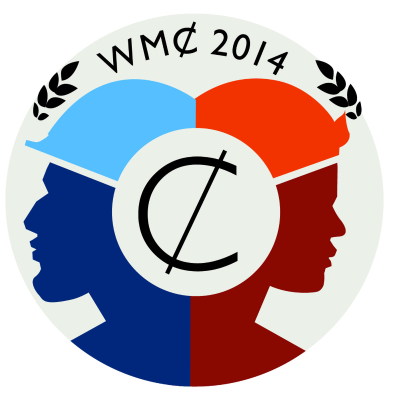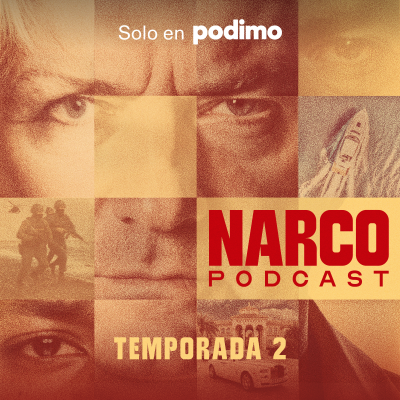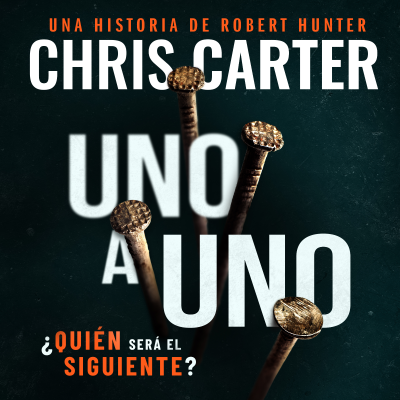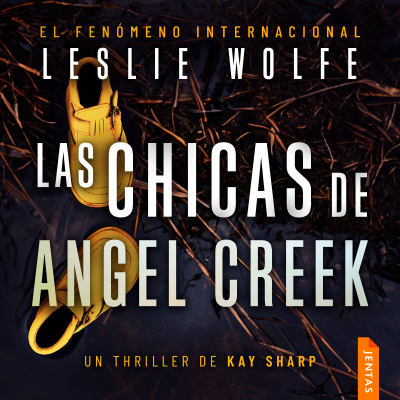
Who Makes Cents?: A History of Capitalism Podcast
inglés
Historias personales y conversaciones
Oferta limitada
2 meses por 1 €
Después 4,99 € / mesCancela cuando quieras.
- 20 horas de audiolibros / mes
- Podcasts solo en Podimo
- Podcast gratuitos
Acerca de Who Makes Cents?: A History of Capitalism Podcast
Who Makes Cents?: A History of Capitalism Podcast is a monthly program devoted to bringing you quality, engaging stories that explain how capitalism has changed over time. We interview historians and social and cultural critics about capitalism's past, highlighting the political and economic changes that have created the present. Each episode gives voice to the people who have shaped capitalism – by making the rules or by breaking them, by creating economic structures or by resisting them.
Todos los episodios
123 episodiosSean Vanatta Joins for a Banking Mega-Pod
To many, banking remains largely invisible—a hidden circulatory system that allocates capital and credit throughout the economy. If it's worth paying any attention to at all, it's only in moments of crisis—when things clot up, and circulation stops entirely. But in recent years, business and financial historians have reminded us that banks are far more than quiet functionaries. In fact, they are foundational to virtually every aspect of modern life: from public and private investment, to the relationship of the state to its citizens, to the distribution of wealth, to the geographical apportionment of money. In short, understanding banking is essential to seeing how power works under capitalism. To help us do that, I can think of no one better to have on than Sean Vanatta, a senior lecturer at the University of Glasgow, and the author of the two books we'll be discussing today: Private Finance, Public Power: A History of Bank Supervision in America and Plastic Capitalism: Banks, Credit Cards, and the End of Financial Control. Listen for some big-brained takes on the history—and just possibly the future—of banking in the United States.
Sven Beckert on a Global History of Capitalism
Popular histories tend to locate capitalism's origins in Europe, only later moving outward to other parts of the globe. Not so says historian Sven Beckert. Capitalism, he argues, was born global, forged through the connections made by merchants and others from Europe, Asia, Africa, and the Americas. In this month's episode, Beckert brings listeners on an epic ride, tracing global capitalism's rise during the past millennium and around the world, from merchant businesses in Aden, onto the terrifyingly violent sugar plantations in Barbados, and, finally, to the rising industrial power of contemporary China. Colonialism, coercion, and, notably, state power all featured prominently in capitalism's rise, helping this radical new way of organizing economic life overcome elite and non-elite resistance to become one of the most powerful forces in human history. This episode is brought to you by Columbia University Press' Series on the History of US Capitalism and listeners like you.
Mike Glass on the Surprisingly Precarious Postwar Suburbs
Few historical tableaus are more iconic than the midcentury suburbs of Long Island. I can see it now: rows of identical houses, subsidized by federal spending, inhabited by white middle-class heteronormative families 2.3 children, attending well-funded schools. If there's a stereotypical image of the "American Dream," this is it. But after reading Mike Glass' new book, Cracked Foundations: Debt and Inequality in Suburban America, I can promise you'll never think about the suburbs quite the same way. Glass reveals that the way we paid for those homes and those schools—through debt financing on the capital markets—left midcentury suburbs unstable, unequal, and racially segregated. Even in the so-called "golden age of capitalism," suburban life was more precarious than I'd ever imagined. If you're ready to demolish all of the things you thought you knew about postwar suburbia, listen to today's episode with Mike Glass.
Rudi Batzell on Racialized Working-Class Politics in the U.S. and British Empires
This month's episode offers a fresh perspective on an old debate. Jettisoning outdated modes of analysis that emphasize race vs. class, guest Rudi Batzell illuminates the materialist underpinnings of racialized working-class politics in the U.S. and British empires. Employing a transnational approach, Batzell shows, for example, how land reform in Ireland helped set the British labor movement on a trajectory towards more inclusive unionism, while, in the U.S., northern industrialists' ability to recruit landless African Americans from the U.S. south undermined working-class solidarity in the U.S. and lay the foundation for the more narrow craft unionism of the American Federation of Labor (AFL). Later, we discuss the anti-immigrant and whites-only policies of labor unions in the U.S., Australia, and South Africa, wrestling with the white working-class movement to restrict immigration. The history presented here contains some hard truths about the difficulties of organizing across fractured working-classes, while also making the case for reckoning with this history as a necessary precondition for building a more equitable and just world.
Leigh Claire La Berge on Why Capitalism Might Be A Joke
If you work at a so-called laptop job, there are moments every day when your work feels silly, pointless, absurd, even fake. What if you wrote an entire book that tried to inhabit and analyze that very feeling? Leigh Claire LaBerge's new book—which is part memoir, part history, with a heavy dash of dark comedy and a sprinkling of Marx—attempts to do exactly that. Drawing on her time working inside of a corporate conglomerate, LaBerge alternatively revels in and eviscerates the inanity of day-to-day white collar life. Late capitalism, she shows, might just be one long joke. The question is: who's the joke on? Workers? Consumers? The planet? Listen to this month's episode to find out.
Elige tu suscripción
Oferta limitada
Premium
20 horas de audiolibros
Podcasts solo en Podimo
Podcast gratuitos
Cancela cuando quieras
2 meses por 1 €
Después 4,99 € / mes
Premium Plus
100 horas de audiolibros
Podcasts solo en Podimo
Podcast gratuitos
Cancela cuando quieras
Disfruta 30 días gratis
Después 9,99 € / mes
2 meses por 1 €. Después 4,99 € / mes. Cancela cuando quieras.















































